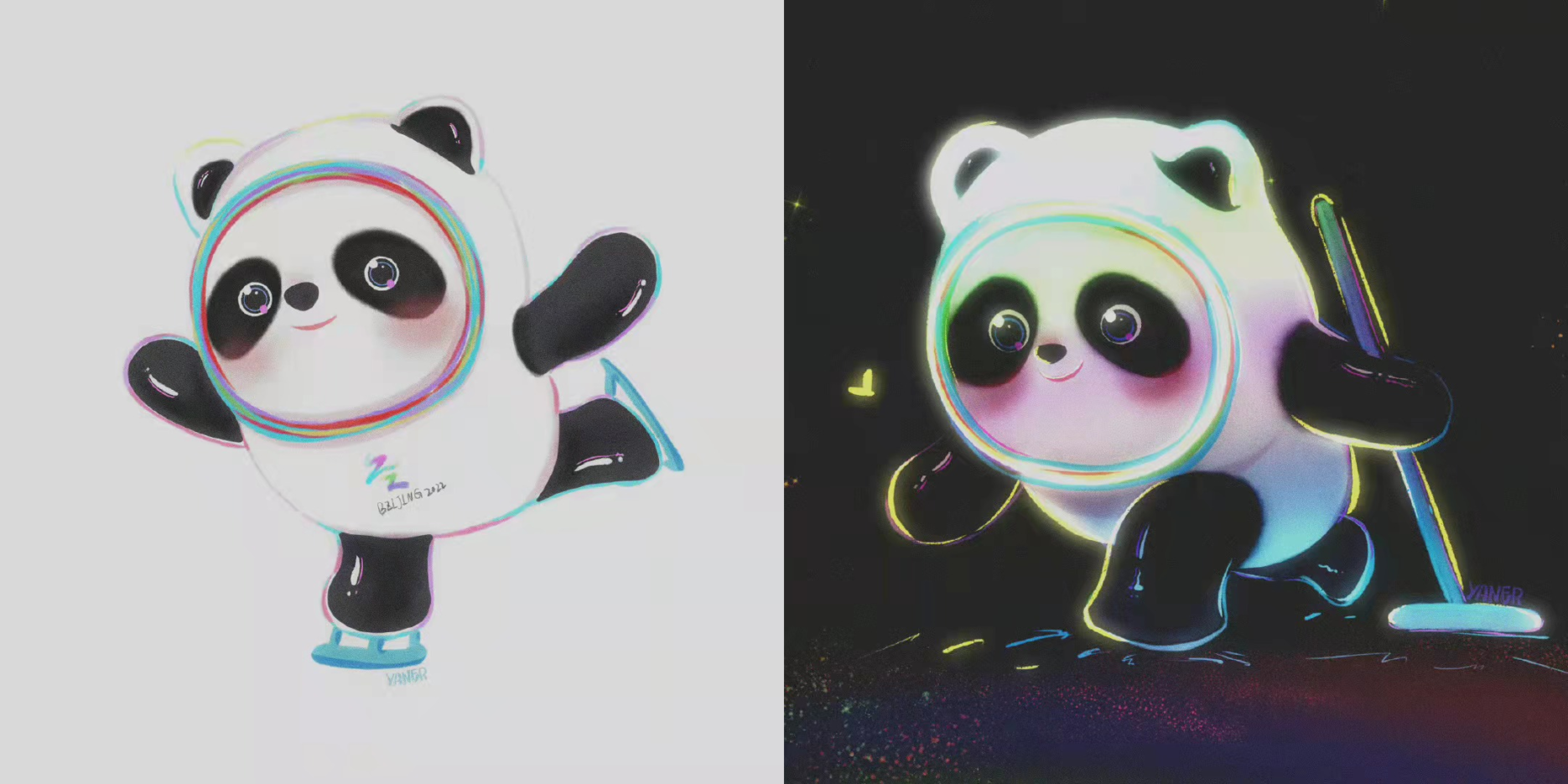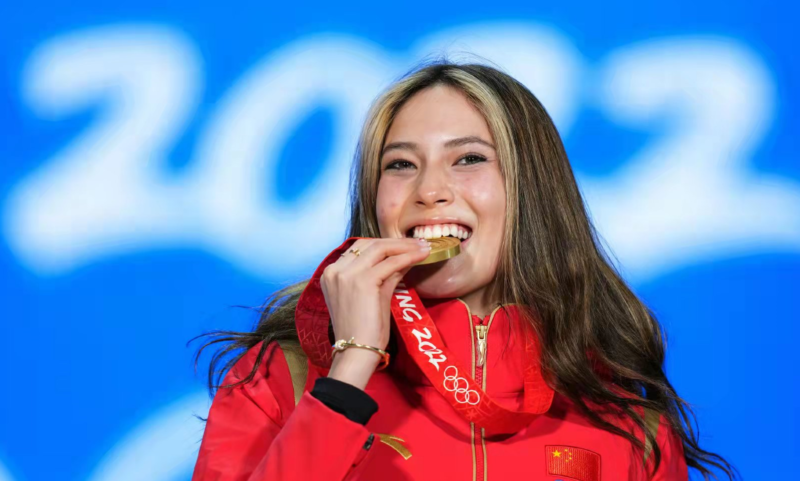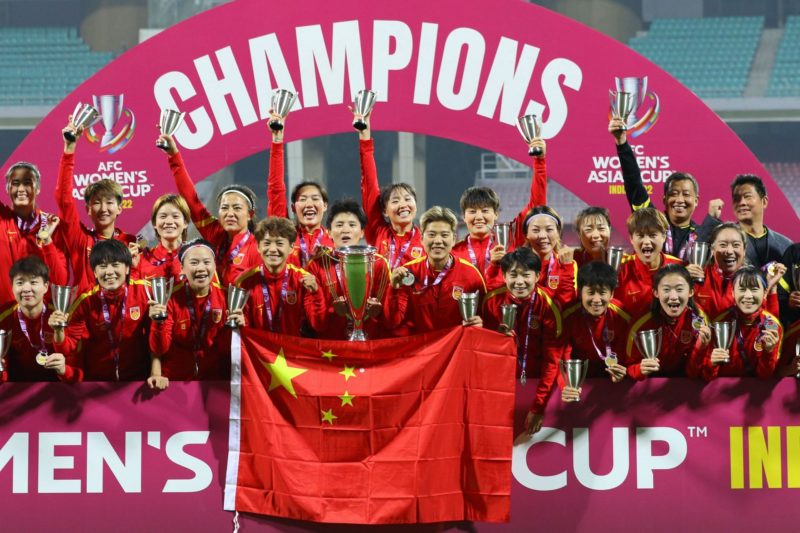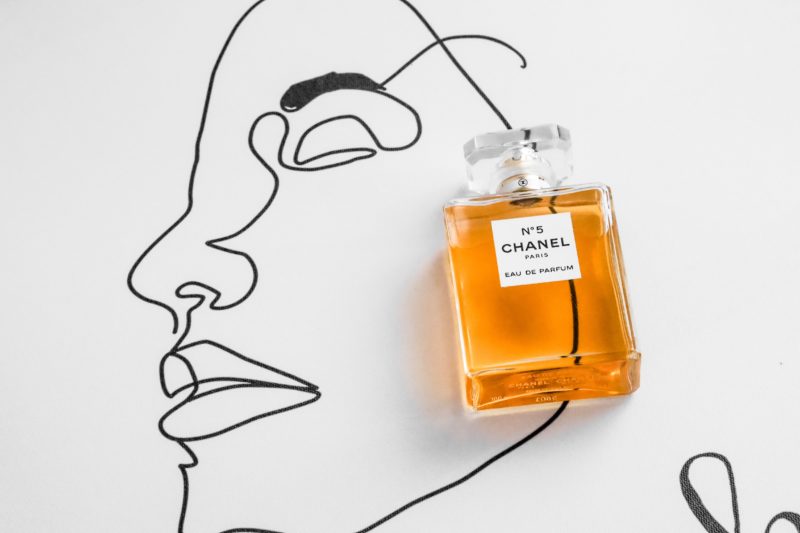The chubby panda mascot Bing Dwen Dwen has become an international sensation since the beginning of the Winter Olympics on 4 February, with hundreds of people queuing up for hours in the harsh winter in Beijing to get the plush toy. In response to the sell-out, the Beijing Organising Committee for the Olympic Winter Games has said China has been boosting production of this merchandise amid shortages, according to the state media Xinhua on 8 February.
The cuddly mascot for the Beijing 2022 Winter Olympic Games, that medal winners receive on the podium is becoming a big hit, topping Chinese social media following the opening ceremony last Friday and drawing in over 2.15 billion views on Weibo, China’s answer to Twitter. This level of sales shows the national pride and spending power such events bring, with the pride of China shown not only in the sports events but also in the panda itself which is a typical mascot for China internationally.
It is reported that the daily sales of Beijing 2022 merchandise at the flagship store in Beijing hit a record high of nearly 3 million RMB ($471,194) on the opening ceremony, with Bing Dwen Dwen being the biggest sought-after. Restrictions on the number of purchases of this mascot per person have soon been introduced amid the buying frenzy, and some have been reselling online for hundreds of dollars, showing a wide craving for the ice-glazed mascot.
While the durable design, based on a panda (China’s National Treasure), surely has contributed partly to the hype. Another key part is the plastic shell representing ice, a smart nod to the winter sports event and is also believed to have dressed the panda like an astronaut, which indicates China’s achievement in the astronautic industry in recent years. With these meanings behind the mascot, it adds value towards the mascot, widening its appeal and furthering the consumer impact the product has.
Moreover, the hyper-localised name injects the cuteness with a cultural edge. While “Bing” is ice in Chinese, “Dwen Dwen” is an adaptation of a dialect mostly used in the northern part of China, which Beijing is part of, and is used to describe someone who is chubby and lovable. Such adjustment of the local language not only caters to Chinese consumers’ pride in products dedicated to this international event hosted in their homeland but also allows the local culture to penetrate visitors from across the globe.
“Shoppers enthusiasm for mascot souvenirs surpassed that in 2008, I have never seen a mascot toy that was out of stock” Zhang Qing, CEO of Key Solution Sports Co., a consulting service provider for the sports industry in China, told the state media outlet Global Times. Olympic-related products brought about a revenue of $160 million during the Beijing Olympic Games in 2008, and the figure is expected to surpass 2.5 billion RMB ($392.66 million) during this year’s Winter Olympics, as according to Shanxi securities.
Read more:









